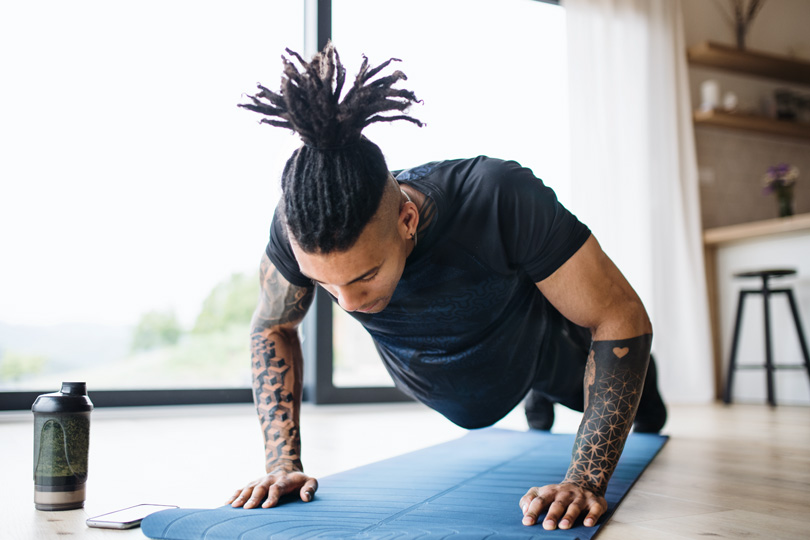If you’re interested in building muscle, strength and overall fitness, you’re probably putting in some time at the gym and carefully watching what you eat. But there's one key hormone that plays a major role in your ability to reach your fitness goals: testosterone.
Testosterone is often referred to as the "male" hormone because it is responsible for many of the physical characteristics and functions traditionally associated with men. From muscle mass to sex drive, testosterone affects multiple aspects of health and physiology. But what impact does testosterone have on your overall fitness performance?
The testosterone-exercise connection
Testosterone plays a role in many biological functions. When it comes to fitness, maintaining healthy testosterone levels is important for building muscle mass and strength in response to exercise. Low testosterone is associated with not only a decrease in muscle mass, strength and endurance but also an increase in body fat.
Generally, testosterone levels increase in response to exercise. However, these changes in testosterone levels appear to be dependent on several factors—from the type of exercise you’re doing to personal health characteristics that can influence testosterone levels independent of exercise (e.g., age, body weight, alcohol use, nutrition and stress levels). While exercise seems to boost testosterone levels in the short term, it’s unclear whether exercise contributes to significant changes in the long term.
In terms of the workouts you’re doing, resistance training may be one of the most effective ways to increase testosterone levels during workouts. Testosterone is an anabolic hormone, meaning it’s essential in helping the body build muscle. So, when you lift weights in resistance training, your body releases testosterone to support that muscle growth.
High-intensity interval training (HIIT) is another exercise method that may help to increase testosterone. However, research shows that HIIT’s effects on testosterone levels can vary widely depending on a person’s fitness level. Similarly, cardio workouts have also been linked to increases in testosterone, but the evidence isn’t quite as robust as that supporting the association between resistance training and boost in testosterone levels.
Testosterone levels can affect your fitness performance too. Having healthy testosterone levels has been shown to help build muscle more effectively, while low testosterone is associated with lower muscle mass and reduced physical performance. A testosterone test can let you know if your levels are within a healthy range.
How can I boost testosterone through my fitness routine?
Now that you know more about the effects that strength training can have on your testosterone levels, you can design the optimal workout routine for your goals.
Ultimately, any good workout routine is one that you can consistently follow, regardless of its effects on testosterone. You just need to make sure to pick a type of exercise that is not only doable for your personal strength and abilities but is also genuinely enjoyable to you. Whether that means power walking around your neighborhood a couple of times a week or taking up a cycling class with a friend, it’s important to pick workouts that you’ll realistically stick to on a regular basis.
As for the optimal fitness routine for increasing testosterone levels, this will vary widely from person to person. For example, research shows conflicting evidence in terms of time of day of exercise and its effects on testosterone and other hormones including cortisol. Similarly, there’s no hard-and-fast rule for how often to exercise in relation to testosterone levels. Your best bet is to follow guidelines from the Centers for Disease Control and Prevention (CDC), which recommend that all adults engage in at least 150 minutes of moderate-intensity exercise and two days of strength training every week.
Understanding your testosterone levels
Regardless of your fitness goals or workout routine, it’s important to remember that several factors can influence testosterone levels.
Testing for testosterone levels with a simple blood test can identify if your levels are within the normal range for your age. Morning testing is considered to be the most accurate and optimal time of day to test. If your levels are low, you have options. Your doctor may recommend lifestyle changes like weight loss, improved diet and exercise. For some men, testosterone replacement therapy may be an option to restore levels.
If you are struggling to build muscle and strength with your current routine, consider testosterone testing, especially if you have any other symptoms like low energy or sex drive. Labcorp OnDemand’s Testosterone Test is only clinically appropriate for people assigned male at birth. If you are a woman seeking a testosterone test, you should contact your healthcare provider.





